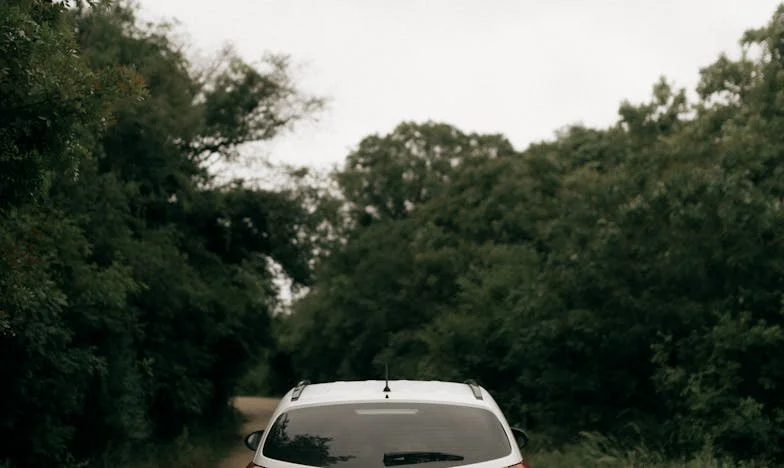Three Days of Winter: A Christmas in the ICU
“You have to leave, Mr. Carter. Visiting hours ended an hour ago.”
The nurse’s voice was gentle but firm, a quiet force against my stubbornness. I stared at the pale, unmoving hand I held—Sarah’s hand, my wife’s hand, the woman I’d loved for forty-two years. I shook my head, throat tight.
“I’m not leaving,” I whispered, more to her than to the nurse. “She hates hospitals. She needs to know I’m here.”
The nurse sighed, exchanged a glance with the night-shift orderly, and retreated. I didn’t care. In that cold, humming ICU room, the world had shrunk to just Sarah and me. Out the window, the city glowed with Christmas lights—red, green, gold—a cruel, sparkling reminder that the world was celebrating while my world was falling apart.
Three days ago, I’d watched Sarah rush around our little home in Syracuse, humming carols, brushing tinsel off her sweater. She was full of plans—her famous apple pie, the grandkids arriving from Albany, the church choir’s midnight mass. We were worried about money, of course—two Social Security checks don’t stretch far. But Sarah insisted: “It isn’t Christmas without pie, Tom.”
Now she lay silent, tubes snaking from her nose and arms, her chest rising and falling in shallow, uneven beats. Pneumonia, the doctor said. She’d caught a cold at the grocery store, then it just… spiraled. In less than a week, she went from baking cookies to gasping for air, her body betraying her with terrifying speed.
I remember that first night in the ER. The doctor’s words came out in clinical, practiced lines: “We’re doing everything we can, Mr. Carter. She’s strong.”
But Sarah’s strength was the quiet, stubborn kind—the kind that bakes cookies for neighbors who never say thank you, that clips coupons and makes leftovers feel like a feast. Not the kind that wins hospital battles.
I texted our kids, Rachel and Mike, told them not to rush, it was probably nothing. I lied. Even as I typed, I watched Sarah’s lips turn blue.
The second day, Christmas Eve, the hospital sang with carols over the intercom. Nurses wore reindeer antlers. I hated them for it. My phone buzzed with texts: “Merry Christmas, Dad! Hope Mom’s okay!” I ignored them. My world was the beep of the machines, the hiss of oxygen, the way Sarah’s hand twitched every so often, as if trying to find me in the dark.
Rachel called, sobbing. “Dad, should we come now? What did the doctors say?”
I lied again. “She’s stable. Don’t make the drive in this snow. I’ll call if there’s news.”
But after I hung up, I put my forehead to Sarah’s hand and whispered, “Don’t you dare leave me, Sarah. Not now, not like this.”
I remembered the first Christmas we spent together, 1982, the year her father died. She didn’t want to celebrate, but I talked her into hot chocolate and a walk through the park, the snow bright under the streetlights. She laughed, finally, and that laugh—clear, bright, stubborn—became the anchor of my life.
Now in the ICU, her laughter was just a memory, echoing in the sterile air. The only sound was her ragged breathing.
On Christmas morning, the sun rose weak and gray. The nurse brought me coffee. “You need to eat something, Mr. Carter.”
I shook my head. “Not hungry.”
She pressed the cup into my hands anyway. “She’d want you to.”
I stared at Sarah’s face, so familiar and so foreign with the bruises and tape. Could she hear me? Did she know I was here? I told her every story I could remember—about our first apartment, the time we lost Mike at the state fair, the time she burned the turkey but we ate it anyway, laughing until we cried.
I told her, over and over, “Come back to me.”
The hours crawled. Doctors came and went, their faces grave. “We’re watching her closely. She’s not out of the woods.”
The third night, I slept in the stiff hospital chair, dreaming of our living room, the tree with its mismatched ornaments, the scent of cinnamon. I woke to the sound of Sarah’s breath, still uneven, but—maybe—a little stronger?
That morning, Rachel and Mike arrived, faces drawn and pale, hugs tight and desperate. We sat together, holding vigil. Mike tried to pray. Rachel went outside to sob in the parking lot. I just sat, holding Sarah’s hand, willing her to wake up.
The world outside kept spinning: neighbors called, friends texted. I ignored it all. Christmas was over. Nothing mattered but the woman in the bed.
On the third day, as dusk settled and the world turned gold and blue, Sarah’s eyes opened. Just a crack. Just enough.
“Tom?” she croaked, barely a whisper.
I fell to my knees, weeping. “I’m here, honey. I’m here. I never left.”
Rachel burst into tears. Mike hugged me so hard I thought my ribs would crack. The nurse ran for the doctor. The world, for a moment, was light again.
Sarah didn’t remember the hospital, the three days she spent between worlds. She didn’t remember Christmas. But she came back to me.
A week later, we sat together at home, the tree still up, the pie uneaten. Outside, the neighbors’ lights flickered in the early January dusk. I held Sarah’s hand, feeling the pulse—steady, warm, alive.
I think about those three days all the time. How quickly life can change. How the world keeps celebrating while your own world falls apart. And how hope can flicker in the darkest places, if you just hold on.
Was it faith, luck, or stubborn love that brought her back? I don’t know. But I do know one thing: When everything falls away, what do we really have except each other? Would you have stayed, too?
